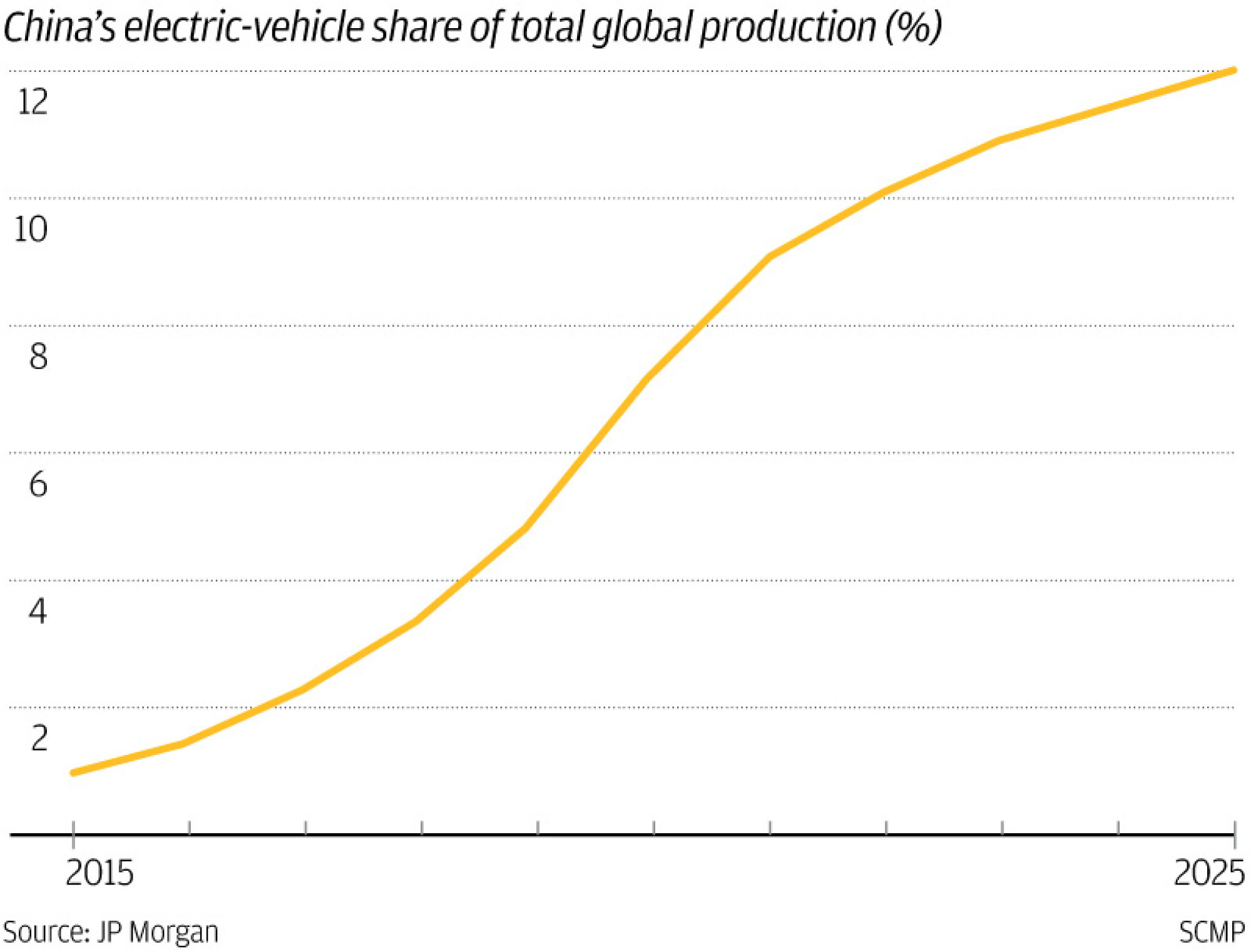
Chinese online car platform Autohome expects data products to drive growth as it works closely with NIO, Xpeng and Li Auto
- Ping An Group-backed Autohome’s shares rose 2.1 per cent to close at HK$180.00 on debut
- Autohome plans to use the share sale proceeds for product development, incubate new businesses and upgrade the technologies it uses
Autohome, an online platform for buying and selling cars, expects new businesses like data products to drive growth as it tracks the country’s booming electric vehicles (EV) market.
“China’s EV market is still at an early stage, however, we are seeing an inevitable trend here with such strong growth,” chief executive Long Quan told the Post in an interview on Monday, following the company’s secondary stock listing in Hong Kong.
Long said that the company has been working with leading Chinese EV start-ups, including NIO, Xpeng and Li Auto, offering them its data products like software-as-a service solution that can help to boost the rate of customer conversion among potential EV buyers.

The online car marketplace plans to use the proceeds for product development, incubate new businesses and upgrade the technologies it uses, such as augmented reality and virtual reality.
“Our data products will be a key driving force of our business,” he said.
Sales of electric cars in China jumped 12 per cent to 1.17 million units, defying the consumption slump and depressed sentiment during the coronavirus pandemic.
Other car-related Chinese companies are also looking to launch share sales in Hong Kong and the US amid growing investor demand. Last year, the Chinese EV start-up trio of NIO, Xpeng and Li Auto raised funds in the US, and have since seen their shares soar.
Dida, an online carpooling and taxi-hailing service, is aiming to raise up to US$500 million, the Post reported earlier. The platform is backed by venture capital firm IDG, and counts NIO Capital, the investing arm of electric vehicle maker Nio, among its investors.
Chinese car maintenance service start-up Tuhu is reportedly considering an initial public offering in the US this year, after raising around US$400 million from a funding round in February.

Autohome, already listed on the New York Stock Exchange since 2013, runs two websites with the domain names “autohome” and “che168”.
It has created a community with 42.1 million daily active users, the highest among all car online service platforms last year, according to Beijing-based research portal QuestMobile.
Its major revenue generators are advertisements from carmakers and fees from car dealers for using its platform to create their own online stores. However, revenue from these segments, which accounted for nearly 90 per cent of the total in 2019, fell last year.
On the other hand, revenue from new businesses such as data products and car financing jumped to account for nearly one third of its net total turnover.
Autohome’s net profit attributable to shareholders rose 6.4 per cent to 3.4 billion yuan (US$525 million) in 2020, according to its exchange filing.
Long said that with leading EV makers now selling directly to consumers and not through dealers, Autohome has been tweaking its strategy accordingly.
“We have rolled out more services products built on our most valuable asset, car users, as we are the most active car-user community in the country and are familiar with them for years,” said Long.

